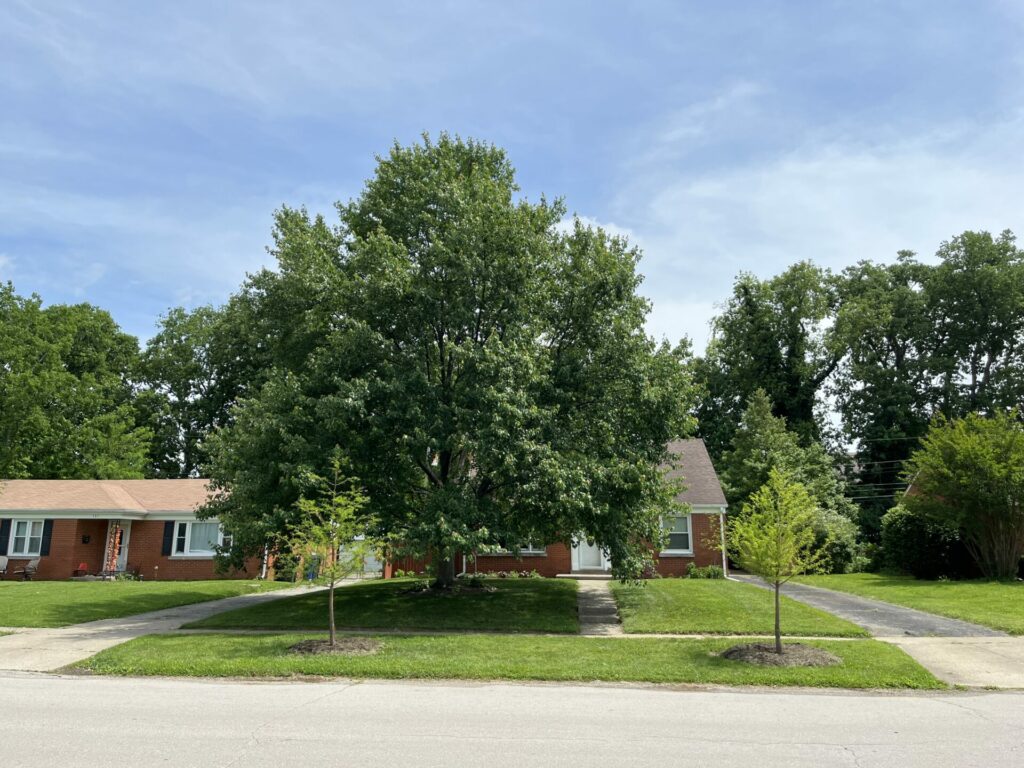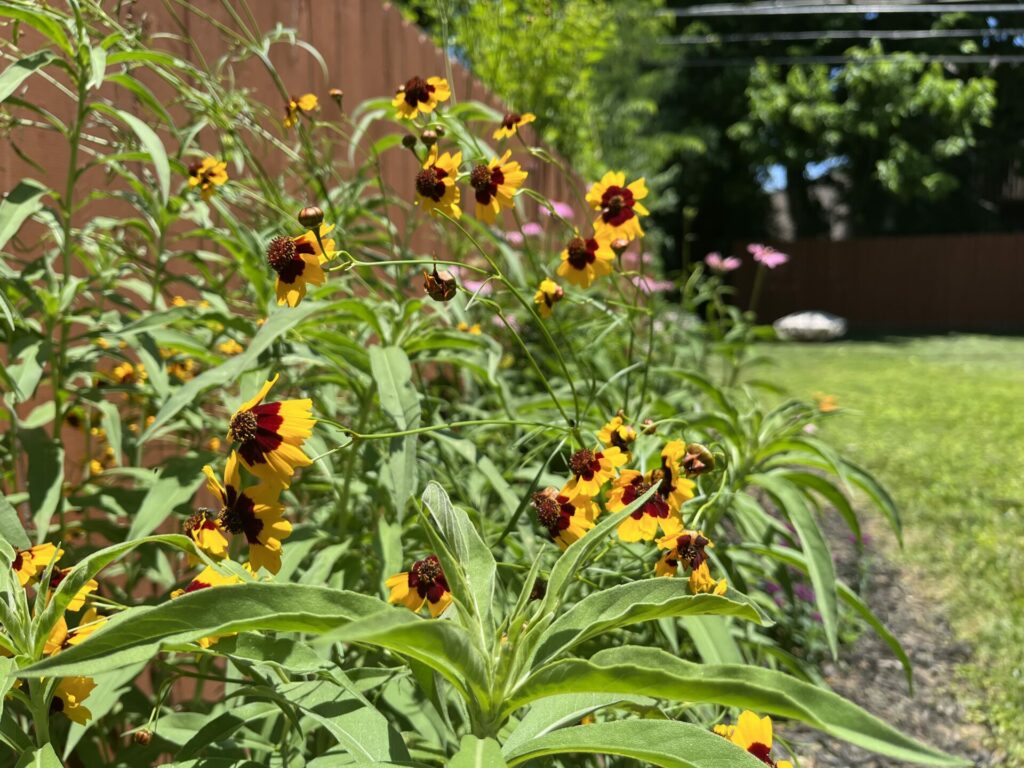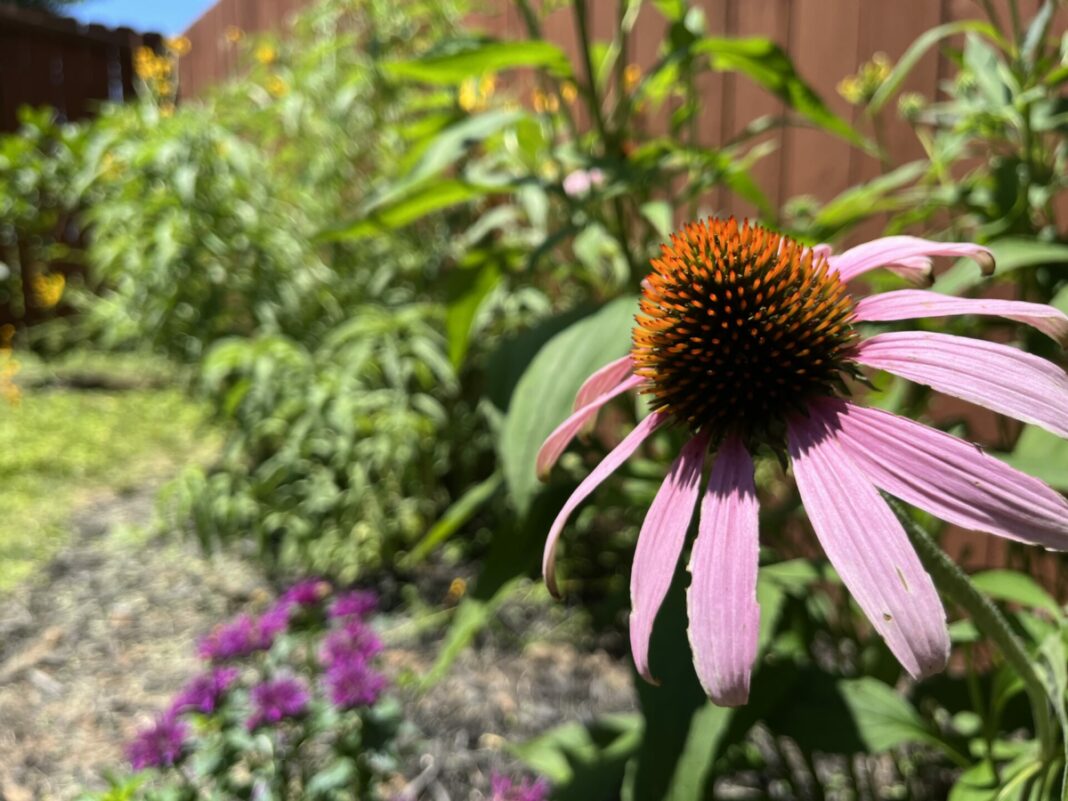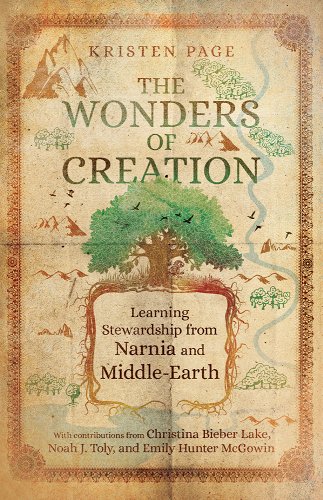Lexington, KY. Kristen Page’s The Wonders of Creation is a collection of lectures and responses given as part of the Hansen Lectureship Series during the height of the COVID-19 pandemic—I remember tuning into the first lecture from my living room via Zoom, excited to hear another natural scientist share about their experiences at the intersection of imaginative literature and the environment. In this text, Page, a wildlife biologist by training, invites us to “refresh” our mode of imagining the natural world through a close reading of the works of J. R. R. Tolkien and C. S. Lewis—a reimagining that can move us toward a more just and ethical way of life.
In Chapter 1, “Stepping Out of the Wardrobe,” Page shares about her own experience of and affection for landscapes, both real and imagined, underlining the power of literary spaces to transform our way of thinking about our own inhabited spaces. For Page, Christians are in particular need of a transformation in their ways of thinking about the natural world and the place of humankind within it, and the work of both J. R. R. Tolkien and C. S. Lewis is well-positioned to help in this reimagining. Both Tolkien and Lewis had a profound affection for their natural environments, affection that is evident in the complexity, detail, and enchantment of their created worlds.
In Chapter 2, “A Lament for Creation,” Page describes the scope and scale of ecological degradation in our modern world, drawing parallels to the destruction of the Shire at the hands of Saruman at the end of The Return of the King. Page emphasizes the un-neighborliness of our American consumerist lifestyle—consumption of limited resources that, either directly or indirectly, reduces the quality of life for our neighbors down the street or on the other side of the world. Page’s own experience of highly contaminated industrial sites in the US evokes Tolkien’s descriptions of Mordor—a catastrophically wasted, permanently hazardous place that can never again be a place of flourishing for humans or other living things. Page also draws attention to the continued emergence of new zoonotic diseases—diseases that can pass from animals to humans—as linked to continued urbanization and infringement on wildlife habitat. These and other patterns of human dwelling within nature cause harm to the natural world and to our human neighbors, and we have to come to grips with this.
In Chapter 3, “Ask the Animals to Teach You,” Page emphasizes the current estrangement of humans from the natural world—humans are increasingly unlikely to experience nature, especially as we become more urbanized, and this manifests in an unfamiliarity with and disregard for non-human species (particularly plants!). The only remedy for this, argues Page, is exposure to the natural world—exposure that can restore our sense of awe and wonder at the beauty of creation, and also confer some hefty physical and mental health benefits. For Page, a particularly memorable experience of wonder at the natural world was her close encounter with a whale while studying abroad in college, mirrored by the description of Aslan’s creation of Narnia in The Magician’s Nephew.
I applaud Dr. Page for wading into this conversation—as a fellow natural scientist trained in the western scientific tradition, I can attest that the graduate school and professional experience typical of the natural sciences does not lend itself well to a critical reading of imaginative literature. This work is a stretch for us, and a potentially un-valued investment of time and energy in the academy. But we need more scientists to stretch outside of our narrow fields of expertise to engage with the humanities and arts—we need to understand the ways that people think about themselves and their natural world, and we need to be able to productively enter into this conversation. The Wonders of Creation joins a critical dialogue about human-nature relationships in which I hope we will all actively engage.
Page raises some key points about the history of Christian interactions with the natural world, drawing from Lynn White Jr.’s famous paper. Because I disagree with White that the way that many (or most) Christians have interacted with the natural world is a “Christian” or, even worse, a “Christocentric” environmental ethic (see Wendell Berry’s response to White’s paper—far better than I can do), I will also push back somewhat on Page’s uncritical response to White’s thesis. I’m certain that Page and I agree that it is actually Christ-like to care about the natural world—I think the next step for this conversation is to help fellow Christians see this from the Scriptures and from Christian tradition. That is, in contrast to White’s reductionist claim that a monolithic “Christian” ethic understands the natural world as resource for our consumption according to our own preferences, at least some Christians throughout history have always cared about the natural world and have grounded that understanding critically and thoughtfully in a close reading of the Scriptures.
This is certainly true in Tolkien’s case. I think Tolkien’s complex and nuanced critique of human-nature relationships as depicted in the wizards (Radagast, Saruman, and Gandalf) is particularly illustrative of a Christian environmental ethic that stands in stark contrast to White’s frame. The “Christian” environmentalist described by White is actually more like Saruman—using the natural world for his own designs, hoping (at least in the beginning) to defeat the Dark Lord by increasing his own power. But Tolkien clearly critiques and caricatures this anthropocentric ethic—this is not the way that he thinks we should think about the natural world. Rather, as Dickerson and Evans have also argued, Tolkien uses Gandalf to explore a better way. Gandalf expressly cares about things “that can still grow fair or bear fruit and flower”—not just humans. And he expressly cares about these things for their own sake, a clear distinction from the fundamentally anthropocentric perspective framed by White as the “Christian” ethic. I think we need to push back against this assertion that Christians don’t care about the environment, and underscore instead the many ways that Christians have powerfully imagined and embodied human-nature relationships throughout history. It is Christian to care about the environment—it has always been Christian to care about the environment. And this is not just because Christians ought to care for one another (an indirect anthropocentric argument for environmental stewardship problematized by Leopold)—but because creation itself praises God and groans for restoration and is inherently valuable.


Throughout the text, Page emphasizes climate change as a focal point, often drawing attention to the reluctance of many Christians to understand climate change as anthropogenic. While I agree with Page (and the vast majority of climate scientists) that climate change is likely to be environmentally and socially catastrophic, with disproportionate effects on the developing world, I want to emphasize that your perspective (especially political perspective) about climate change should not keep you from caring for the environment. As Page describes throughout the text, there are many kinds of environmental degradation which are unequivocally anthropogenic (e.g., brownfields!) which require our attention. So, regardless of whether you agree with Page that climate change is perhaps the central environmental issue of our time, you should keep reading. And read Tolkien and Lewis—they powerfully imagine a practical way forward in human-nature relationships that encompasses many kinds of challenges at many scales.
Which brings me to my last point—that Tolkien and Lewis imagine some clear and practical ways for us to work toward human and non-human flourishing in our own inhabited spaces. In particular, I want to emphasize Tolkien’s attention to local spaces, small actions, and personal responsibility. As I have written previously, Samwise Gamgee is my favorite example of human-nature relationships in The Lord of the Rings. Presented with a problem that was not his own doing—the destruction of his hometown—he sets about the long, hard work of restoration. What is a typical American response to environmental problems? My college students tend to think that the government or corporations, not consumers, are responsible for most environmental problems and should be the ones to do the cleanup. We are perhaps unwilling to critically evaluate our own complicity in the supply and waste chains of our American existence: plastics, energy, clothing, food—all come at a hidden social and environmental cost that is easier to blame on corporations or the government than to take responsibility for as an individual consumer. Samwise is clearly not responsible for the destruction of the Shire, but he doesn’t wait for Saruman and his ruffians to restore the Shire. He takes personal responsibility for the health of his own inhabited space, his own local community.
Furthermore, my students often communicate a feeling of being overwhelmed when we have (necessary) conversations about the scope of our global environmental crises. What can any one person do about the Great Pacific Garbage Patch? Or climate change? Or forever chemicals? The perceived distance between the consumer and the problem, and the seeming irrelevance of individual action in effecting change to the problem, can tend to disempower individuals from making the lifestyle changes that could position them more ethically and responsibly with respect to the environment and other humans. Here, too, Samwise presents a path forward. Rather than trouble himself with the many big environmental problems of Middle-earth, perhaps Mordor as a glaring example, Sam focuses his efforts at the local scale. He gives himself to the cultivation of health in his own local community. To me, this is an entry-point for everyone. Don’t get so overwhelmed by the bigness of the problems of the world that you feel like the small actions you’re able to take in your own small spaces and communities are insignificant or not worthwhile. Those small actions are perhaps all that any of us can do, and they are absolutely worthwhile.
Definitely read The Wonders of Creation—but don’t let the conversation stop there. Go back and re-read Tolkien and Lewis with a careful eye toward their perspectives on human-nature relationships. Read Berry and others. How else does their work inspire you to think differently about your own relationship to your own places? Take action in your own property, if you have it, and in your local community. For example, my wife and I and our small children grow vegetables in raised beds on our small urban lot in Lexington, and we also recently planted several native trees and a pollinator garden of native wildflowers. Even small actions like these actually have significant environmental and human health benefits. But, regardless of their “ecosystem services,” I think these sorts of actions are worth doing because they cultivate beauty, health, and goodness in our dwelling places. And, once you’ve started your own Samwise projects, share them with your friends and neighbors. Perhaps, with Page, we can all be inspired by Tolkien, Lewis, and others to imagine a better way.
Images by the author.












Wonderful essay!
Comments are closed.